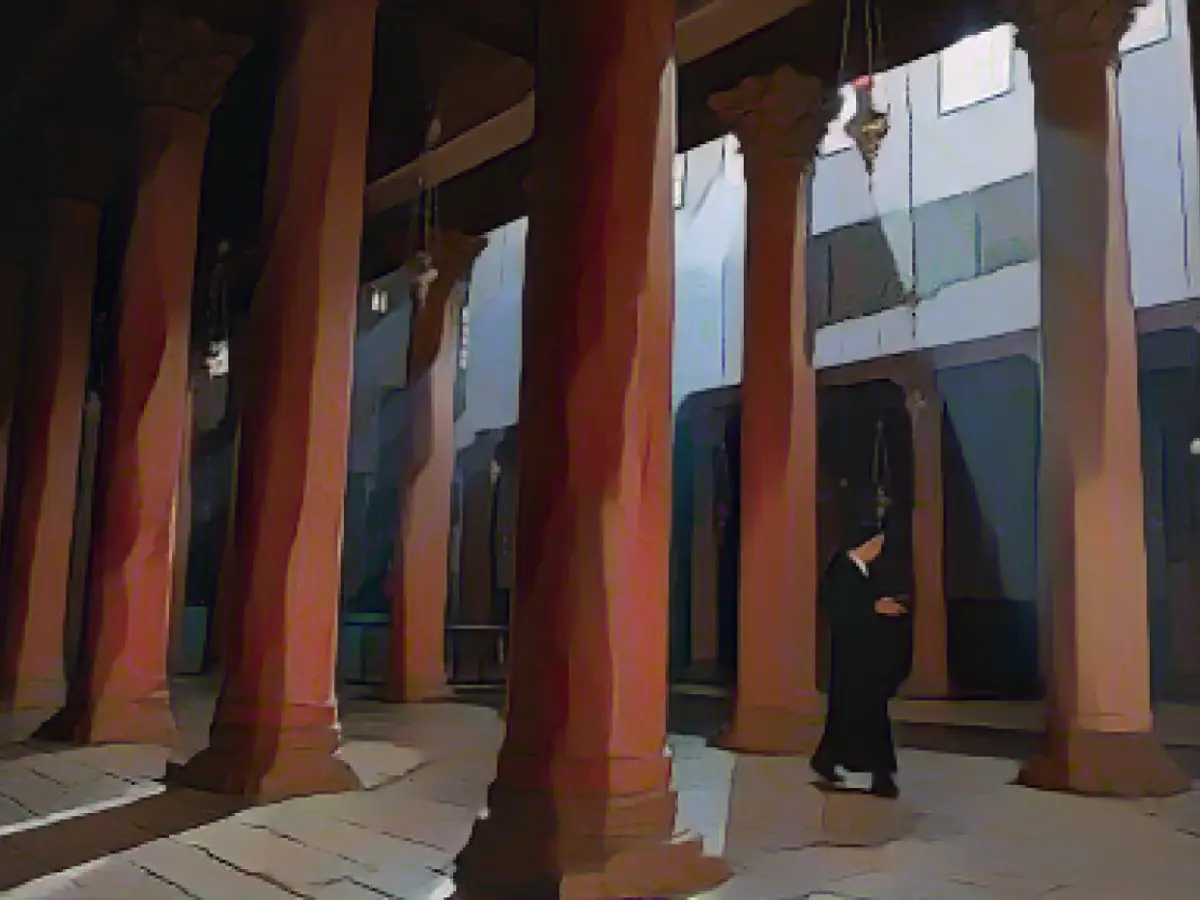In recent years, Christmas in Bethlehem will have a dramatically altered feeling for the Palestinians due to the escalating conflict in Gaza. Once a time of joy, celebration, and remembrance, this year's festivities will be marked by an absence of cheer and unity.
Imagine the bustling streets of Bethlehem filled with twinkling lights, the air filled with harmonious choirs, and the sound of children's laughter as they march with instruments – that's a typical Christmas scene in Bethlehem. It holds deep sentimentality for the Palestinians, symbolizing freedom, hope, and commemorating the birthplace of Jesus, the Prince of Peace.
However, this year, the only thing left shining in Bethlehem is the fading glow of the Christmas tree on Manger Square, where people of all faiths and nationalities usually gather to celebrate. In its place, there will only be the stark reality of suffering – a testament to the pain suffered by the Palestinian people, specifically in the Gaza Strip.
Beginning last month, more than 16,000 Palestinians have reportedly been killed, and over 42,000 have been injured due to Israeli military attacks. Around 70% of the casualties were children and women. Thousands of homes have been destroyed, leaving 1.7 million displaced people to struggle with the harsh realities of a life short on essentials like electricity, fuel, clean water, food, and medication.
The horrifying statistics provided by Hamas-led health ministry in the Gaza Strip paint a grim picture that illustrates the toll of the conflict, which has persisted since the Israeli occupation 56 years ago.
The small Christian community in the Gaza Strip is no exception. They too have been hit hard by the recent destruction. When I recently spoke to Sister Nabila Saleh of the Order of the Franciscan Sisters of the Immaculate Heart of Mary in Gaza, she conveyed her deep sorrow as she shared that approximately 53 families of the remaining 1,000 Christians in Gaza have been devastated.
Christmas in Bethlehem is more than just a religious event. It's a national symbol resonating with Palestine’s Christians and Muslims, who stand united in their pursuit of peace, concord, and shared history. Thousands of pilgrims visit Bethlehem every year, uniting as beacons of peace, reconciliation, and unity, spreading a powerful message of hope and unity to the world.
Unfortunately, the Israeli occupation has severely impacted the religious tourism in the Holy Land for decades. Hotels stand empty or close their doors, souvenir shops shut down, and unemployment rates soar as a result.
The decision to cancel the Christmas celebrations this year due to the intensifying conflict in Gaza will have significant economic consequences for Bethlehem, which is 90% reliant on tourism for its livelihood. In a time of crisis, we cling onto Psalm 34:18, which reminds us that "The Lord is near to the brokenhearted and saves those who are crushed in spirit."
At a time when joyous festivities are at hand, the lack of celebration in Bethlehem serves as a stark reminder of the urgent need for lasting peace. This Christmas provides an opportunity to shed light on the struggles faced by Palestinians, Muslims, Christians, and Jews, and to create new openings for understanding and reconciliation.
Upon speaking with Erzbischof Sebastia Atala Hanna, the Greek-Orthodox Archbishop of Jerusalem, he said, "The cancellation of both the celebratory and spiritual aspects of Christmas is a message to the world that the suffering people of Gaza need peace, justice, and humanitarian aid. Now is the time to plead for a ceasefire and to pray together for the innocent victims."
As the holiday season approaches, may we reflect on the Christmas message and work towards celebrations that bring peace, unity, and hope to the citizens of Bethlehem.
Sources:
Insights:
- Although the conflict in Gaza has significantly impacted the usual celebrations in Bethlehem, the strong sense of national unity and shared history has bound together Palestinians, Christians, and Muslims in their pursuit of peace and reconciliation.
- The decision to cancel the Christmas celebrations in Bethlehem will have profound economic repercussions, partly due to the heavy reliance on religious tourism, which has been severely impacted by the occupation for decades.
- International solidarity and grassroots organizations like Rabbis for Human Rights continue to support the Palestinians, symbolizing the commitment to peace and human rights in the region.
- While the challenges are significant, there are promising examples of nonviolent actions, such as the olive harvest, that promote hope and resistance amidst the conflict. These actions call for new openings for dialogue and understanding between various communities in the region.







